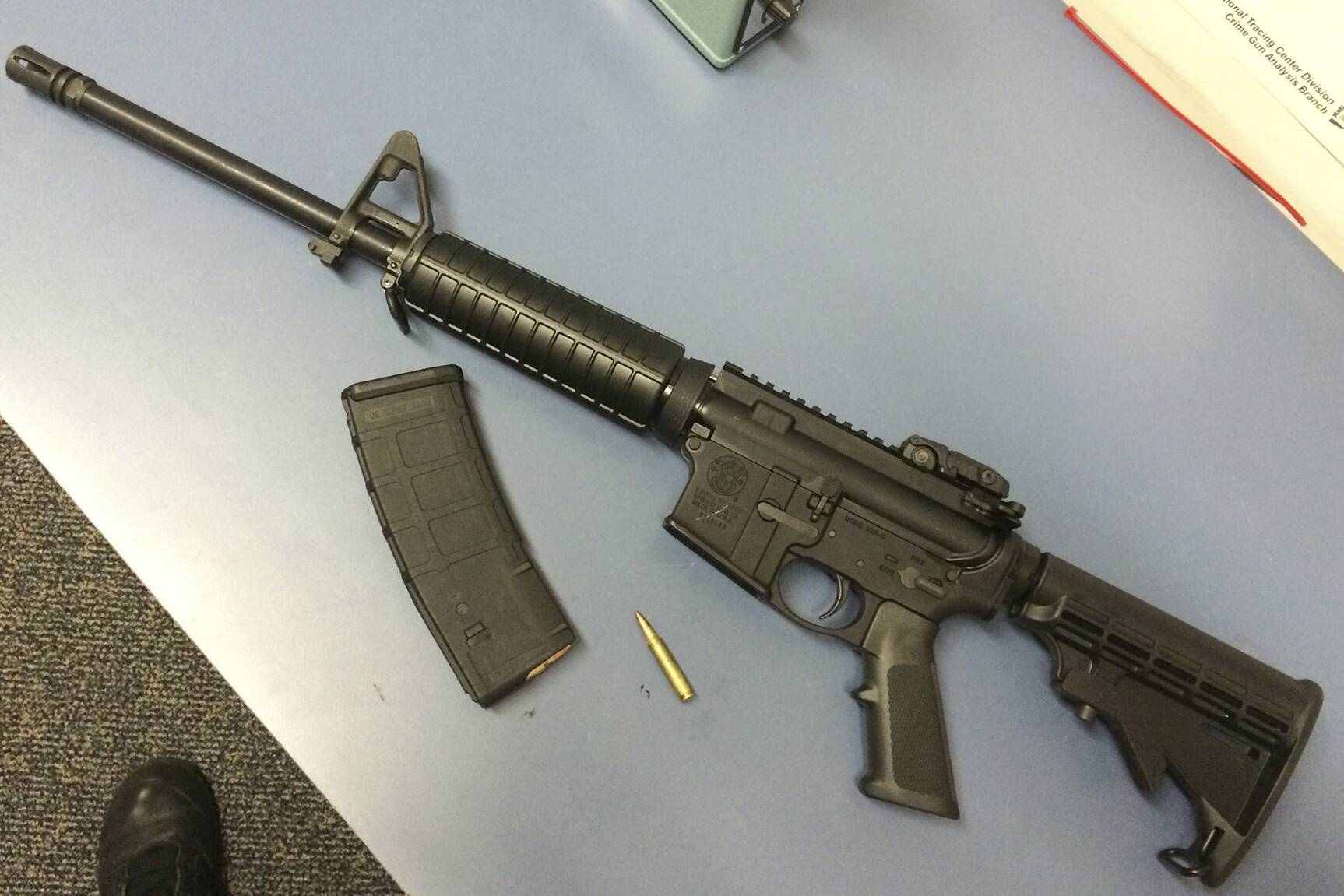Washington state is poised to ban the sale of assault-style weapons and extend the waiting period for firearm purchases, fulfilling two major initiatives of Democratic lawmakers and gun control activists this year.
The Democrat-controlled Senate on April 8 passed legislation banning the manufacture, distribution and sale of certain semiautomatic firearms on a mostly party-line vote.
A day earlier, in a similar partisan fashion, Democratic senators approved a bill requiring completion of safety training before acquiring a gun and imposing a 10-day waiting period to receive the firearm.
Combined with passage last year of a ban on high-capacity ammunition magazines, majority Democrats continue to flex their political muscle in a contentious policy arena.
“We have continued school shootings that we have to do something about. We’ve made measurable progress in addressing it with gun safety regulations,” said Sen. Jesse Salomon, D-Shoreline. “There is no one bill that will solve the problem. All of the bills will probably prevent a shooting here and there. If you’re saving lives it’s a worthwhile approach.”
Senators spent nearly 3½ hours on April 8 debating House Bill 1240 banning the manufacture, distribution and sale of certain semiautomatic firearms.
Democrats cited last month’s slaying of three students and three adults at a school in Nashville, Tennessee, as another tragic reminder of why such a prohibition is needed.
“We’re here to say enough is enough. I don’t want to see another life taken,” said Sen. Patty Kuderer, D-Bellevue, who sponsored the same legislation in the Senate. “There’s literally no place where we can go right now where you aren’t at risk of a mass shooting,”
Republicans argued the measure infringes on one’s constitutional right to bear arms under the Second Amendment. It creates new hurdles for legal gun owners and firearms dealers but fails to increase punishment for crimes committed with the banned weapons.
To curb gun violence, they said, the state needs to do more to bolster public safety laws and address needs of those with mental illness.
Sen. Keith Wagoner, R-Sedro-Woolley, said “it’s not the implement” but how it’s used.
“We’ve been killing people since Cain and Abel,” he said. “Firearms are an easy target but they don’t have anything to do with getting at the root of the problem.”
The bill passed 27-21 with one senator excused. One Democrat, Sen. Kevin Van De Wege, of Lake Sutherland, joined all 20 Republicans in opposition.
The House approved the legislation on March 8. Because the Senate made some changes, it will return to the House for concurrence before going to Gov. Jay Inslee for his expected signature.
It has an emergency clause and will take effect upon signing.
Republicans sought unsuccessfully to remove the emergency clause. They said letting the bill take effect 90 days after signing, like most other bills, will give firearm dealers additional time to offload their stock.
“It doesn’t reduce mass shootings to have an emergency clause,” said Sen. Phil Fortunato, R-Auburn.
Kuderer disagreed.
“Gun violence is an emergency. Kids getting shot in schools is an emergency,” Kuderer said. “Every second counts. How many (mass shootings) will we have if we take out the emergency clause?”
Washington will join eight states with similar assault weapon bans. Like elsewhere, Washington’s legislation is almost certain to be challenged in court. To date, bans in those other states have withstood legal challenge, according to the attorney general’s office.
Under the bill, 61 specific firearms, defined broadly as semiautomatic pistols and semiautomatic rifles with detachable ammunition magazines, would be outlawed. Among them are AK-47s in all forms, Uzi 9 mm carbines, AR-15s, M16s and Beretta AR70 and S70 semiautomatics.
There are exceptions for manufacture and sale to law enforcement and the military. It does not bar the possession of assault weapons.
Senators debated 22 amendments. More than once Lt. Gov. Denny Heck, president of the Senate, stepped in to calm inflamed passions.
“This is an emotion-charged policy debate. The president thinks tempers are getting shorter and we are being less tolerant of each other,” he said. “Take a deep breath.”
Two amendments passed. One gives licensed gun dealers 90 days to sell or transfer their stock to dealers in other states. Another exempts active duty military officers and military retirees moving into Washington from limits on traveling into the state with a banned weapon.
Among those rejected was one to study “the effectiveness of this act in reducing violent crimes, firearm wounds and death in Washington state.” Another from Sen. Ann Rivers, R-La Center, would have imposed harsh penalties on those who steal a banned weapon and use it to commit a felony.
“We have to send a message that it’s not just the weapon, it’s what the person does with the weapon,” she said.
Meanwhile, the legislation approved Friday requires a person complete a firearms safety training program before they can acquire a gun. It also imposes a 10-day waiting period that would start on the day the dealer submits a request to the Washington State Patrol for a background check of the customer.
House Bill 1143 passed on a 28-18 party-line vote with three senators excused. Because the Senate made small changes, it too will return to the House for final action, then be sent to the governor.
Democrats called the new restrictions reasonable and would not prevent any one from buying a gun. Republicans argued they added layers to a well-regulated process, further burdening legal owners.
Sen. Ron Muzzall, R-Oak Harbor, called it “another effort to make ourselves feel better. It will affect the law but not affect those who don’t care about the law.”
This bill would take effect Jan. 1, 2024.
Talk to us
Please share your story tips by emailing editor@kentreporter.com.
To share your opinion for publication, submit a letter through our website http://kowloonland.com.hk/?big=submit-letter/. Include your name, address and daytime phone number. (We’ll only publish your name and hometown.) Please keep letters to 300 words or less.

